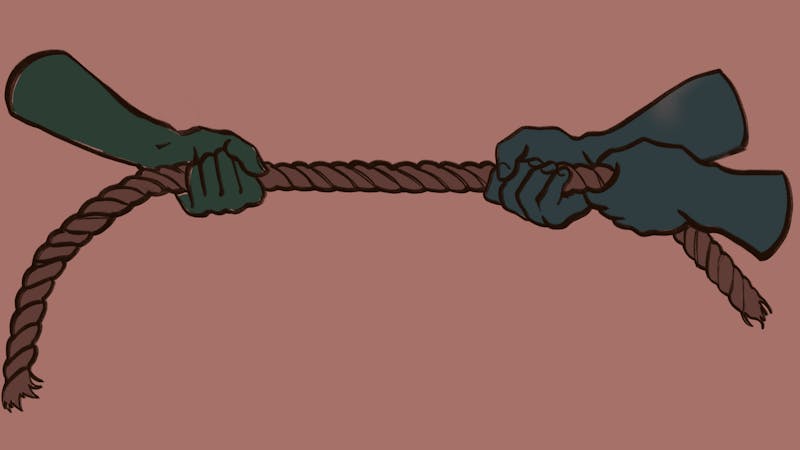Letter from the Editor 02.08.2022
On accountability, restorative justice, and reckoning with our past

Accountability is hard.
Whether it’s being accountable for your own actions or figuring out how to hold someone else accountable, the process often feels uncomfortable in a world that grants the powerful with such strong protections against the impact of their own actions. We see it in the disparate effects of climate change on communities of color, in the near constantly revolving door of the companies we should boycott this month that bounce back the next, and in the reluctance of our own university’s administration to address discrimination on its campus.
It’s even harder to define what accountability is.
We’re taught to think it’s retributive, that whoever caused the wrong must have wrong done to them in turn, but this feels reductive. Centuries of activists have worked to redefine the concept of accountability to be community–centered and restorative. But this new vision of accountability—one that focuses on the needs of whomever experienced the harm and sees justice as a process—requires deep introspection and a constant questioning of what we’ve been taught.
For all the work that practitioners of restorative and transformative justice have done to build better systems of accountability, the rest of the world hasn’t caught up. Maybe that’s because it’s easy to look for someone to blame, but it’s so much harder to decide who’s responsible for fixing it.
Street is reckoning with this too. Each year, a new board inherits the publication from the last—and with it all of the mistakes they made. We’re still learning what it means to repair a complicated 50–plus–year history when none of us are around for more than four.
This week, we dug deep into the scandal surrounding Amy Wax, attempting to understand exactly what it means for Penn to hold her (and other tenured faculty) accountable. Of course, we’re still learning how to cover the complicated web of issues that exist at this university when we’re students here too, inevitably affected by the same issues we cover. But we’re hoping that features like this week’s are a step in the right direction.
More Like This
PennConnects
Newsletters
Get 34th Street's newsletter, The Toast, delivered to your inbox every Friday morning.
Newsletters